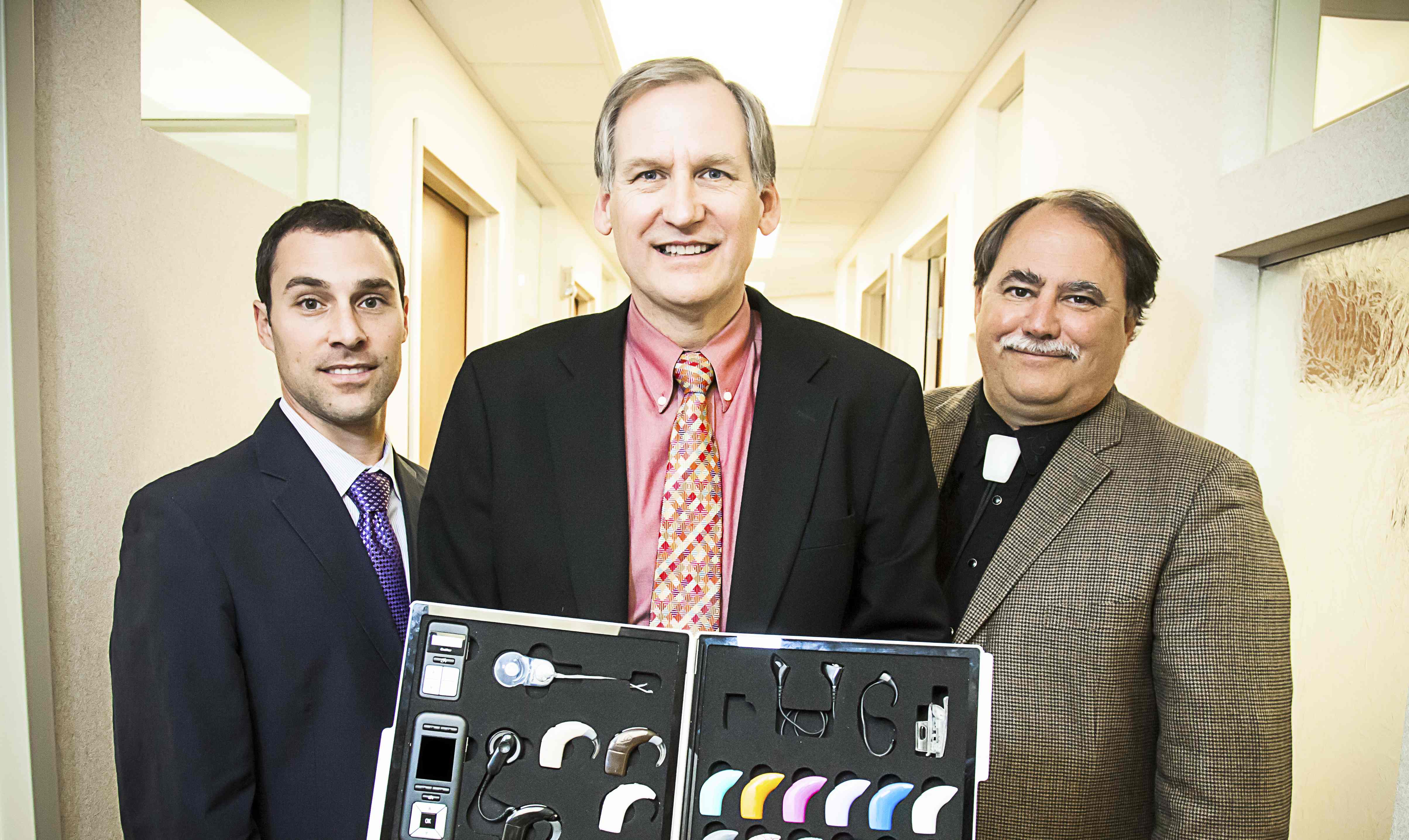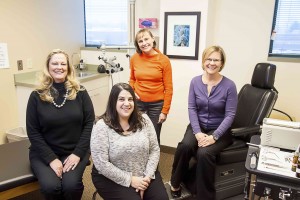When hearing aids aren’t enough: Cochlear implants offer clarity | by

No one really knows exactly how, when or why Marcia Robertson experienced hearing loss. Her physician doesn’t think it was congenital because her speech is normal, she says. But Robertson, 52, has been hearing impaired most of her life, and only within the past few years has experienced the world differently than ever before.
After wearing traditional hearing aids for a few years, but abandoning them because their noise amplification was so irritating, Robertson resumed wearing hearing aids—but the digital kind, which were an improvement.
Still, after she had children (triplets), her hearing declined further, such that she didn’t feel comfortable going anywhere alone—even with the hearing aids.
Robertson finally went to an ENT who suggested she consider cochlear implants and referred her to Dr. Robert Feehs, a neurotologist at Denver Ear Associates.
Since the late 1970s, Denver Ear Associates has been the Rocky Mountain region’s largest and longest established practice solely dedicated to hearing disorders, Feehs says. The practice sees patients not only in Colorado but also from Montana and Wyoming.
Denver Ear Associates, comprising three board-certified hearing specialists and six audiologists, provides services for all kinds of hearing related disorders, including pediatric and adult hearing loss; balance and dizziness, tinnitus, facial paralysis, acoustic neuromas and Meniere’s disease. Located near Swedish Hospital, Denver Ear Associates established the Colorado Cochlear Implant Institute within its offices. [See sidebar]
“A whole different world has to come to life. It’s stunning,”
“Originally cochlear implants were used to treat profound hearing loss in clinical trials where people had no hearing at all,” Feehs says. “But over the years, the qualifying criteria has expanded from zero clarity to where you can have 60 percent clarity in the good ear and 50 percent or less in the bad ear.”
The cochlear implant essentially picks up where the hearing aid leaves off. “Word recognition or discrimination can deteriorate as we age, and hearing aids do nothing to correct this,” Feehs says. “If on audiometric testing [tests that measure pitch and loudness] your word discrimination is only, say, 40 percent, meaning you only understand four out of 10 words given, your hearing aids are not going to correct that. The cochlear implant has the potential to improve this.”
After enduring numerous hearing tests as her hearing declined, Robertson’s hearing loss finally qualified her for cochlear implants. Cochlear implants consist of two main pieces—one that Feehs places under the scalp along with an electrode while the patient is under general anesthesia. An audiologist then tests the electronic device in the O.R. Once the patient heals, she returns for a fitting of the external piece, which fits over the ear. Denver Ear Associates has performed hundreds of implants over the years, says Dr. Robert Muckle, a neurotologist at Denver Ear Associates.
“The big difference between cochlear implants and traditional hearing aids is the discrimination ability—how the ear can process sound. A hearing aid makes sound louder, but the cochlear implant stimulates electrically, so we can get clarity.”
That doesn’t mean hearing aids are outmoded. “For people who have beginning or mild hearing loss, the hearing aid is all they need,” Feehs says. “There are millions of people who wear hearing aids, and that’s the best thing for them.”
But for people like Marcia Robertson, hearing aids weren’t enough. The cochlear implants have made a huge difference in her ability to discriminate sounds. For one thing, as a “bird fiend” all her life, she can now identify birds by their calls. “A whole different world has to come to life. It’s stunning,” she says.
Still, Robertson, a pharmacy technician at Rose Medical Center, is candid about the adjustment. “When I got my first implant, my husband sounded like Darth Vader, and when my dog barked, he sounded like Mickey Mouse.” But periodic re-mapping of the implants has fine-tuned the sound discrimination so her husband sounds like himself and her Papillon sounds like a dog instead of a cartoon character. Now Robertson, can also hear what’s going on behind her, which has enhanced her feeling of safety.
Wearing a hearing device takes getting used to, Robertson admits, but it’s worth it to enjoy sounds she couldn’t discern before. “It takes work. Some people take them off because they can be hard to get used to, but my advice is, be determined; decide you want the help.”
Listen up: The Colorado Cochlear Implant Institute Helps Patients and Families
The Colorado Cochlear Implant Institute at Denver Ear Associates was established to help patients and their families manage hearing loss and improve their quality of life. CCII’s goal is to educate, assist and cooperate with each patient during the pre- and peri-operative period, and to provide lifelong care for each implant patient while taking into account the individual and often specialized needs of all its patients.
Tags: cochlear implants, hearing, hearing aids, Swedish Medical Center
Leave a Comment
Please be respectful while leaving comments. All comments are subject to removal by the moderator.


